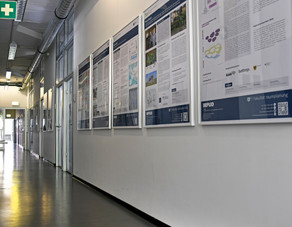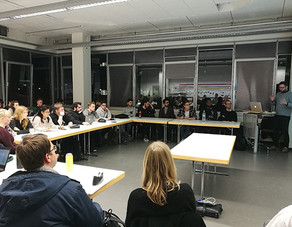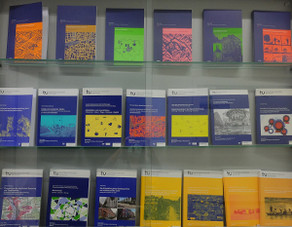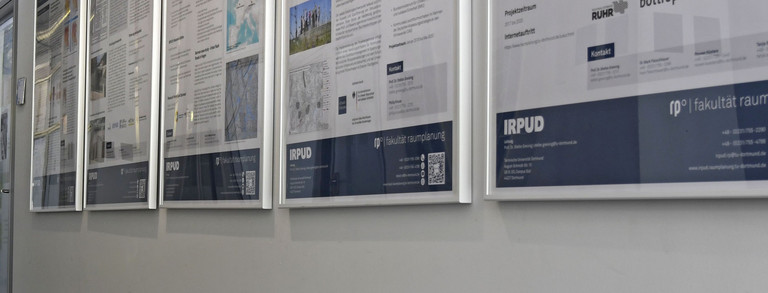LIRLAP final event workshops in Hanoi, Bangkok und Manila
The event kicked off with a workshop at the Vietnam National University of Agriculture in Hanoi on 18 March. Under the chairmanship of Assoc. Prof. Dr. Tran Trong Phuong, project leader and dean, numerous experts and scientists including Thammasat University in Thailand and the School of Urban and Regional Planning of the University of the Philippines, Hanoi University of Natural Resources and Environment, Hanoi University of Construction, the University of Architecture, the National Economics University and the Vietnam National University of Science discussed. In addition, state administrative authorities from the Department of Land Management, the Ministry of Agriculture and Environment, and officials from Dan Phuong and Ba Dinh districts were represented.

In his welcome speech, Prof. Dr. Pham Van Cuong, Vice President of VNUA, emphasized the importance and practical impact of the project for both Vietnam and the Vietnam National University of Agriculture, especially in the context of the decline of the inner-city areas in Hanoi (old collective housing complexes), which are very vulnerable to natural disasters such as floods, fire and explosion risks, Earthquakes and storms are.

In the opening speech, Assoc. Prof. Dr. Tran Trong Phuong, emphasized the essential role of the faculty in addressing urgent issues related to disaster risk management, climate change, urbanization and environmental sustainability. He pointed out that Vietnam, like many other countries, faces an increasing threat of natural disasters, which are exacerbated by climate change. Rapid urbanization has further exacerbated these challenges as cities grow at an unprecedented pace, putting additional pressure on infrastructure and communities. These developments underscore the urgent need for research and strategic planning to mitigate disaster risks and strengthen resilience to climate change. He noted that the implementation of the LIRLAP project at VNUA was very successful. This work has resulted in proposals for appropriate solutions for vulnerable settlements, ensuring a balance between the interests of residents and Hanoi's sustainable urban development strategy. In addition, the project shared valuable experiences from neighbouring countries such as Thailand and the Philippines, which provide a reference basis for formulating appropriate policies in Vietnam. The intense discussions on integrating resilience into urban planning and finding innovative solutions to the challenges facing modern cities have proven invaluable.
Prof. Dr. Matthias Garschagen, Dr. Olabisi Obiator and Bethany Liss, all LMU, as well as Hannes Lauer (Stuttgart) and Dr. Juan Du, TU Dortmund University, presented the results of the research from the three countries for discussion.
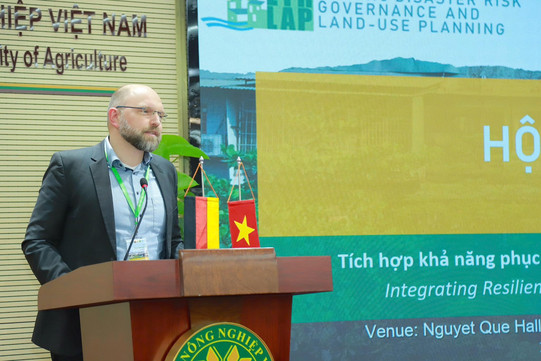
Three days later, on March 21, the focus was on Bangkok. Under the direction of Assoc. Prof. Dr. Wijitbusaba Mamore, Thammasat Urban Futures and Policy Research Unit, Dr. Wolfgang Scholz introduced the topics. Afterwards, Dr. Juan Du, TU Dortmund University, Bethany Liss, LMU Munich, Hannes Lauer, University of Stuttgart, presented the LIRLAP results and lessons learnt on Bangkok. The knowledge transfer between Manila and Hanoi was presented by Evelyn Lorenzo, University of the Philippines with Dr. Juan Du, TU Dortmund University, Dr. Ngo Thanh Son, VNUA Hanoi and Prof. Dr. Mathias Kaiser, Kaiser Ingenieure. A second important component was the knowledge transfer from Germany to Asia with elements of risk-based reconstruction in Germany, to which Prof. Dr.-Ing. Stefan Greiving, TU Dortmund University, was connected online.
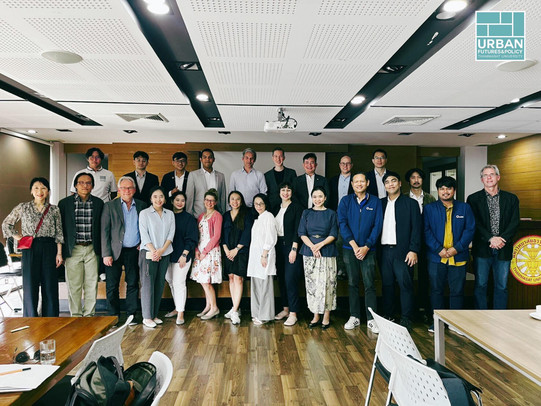
The afternoon of the workshop in Bangkok was organized in two roundtables: Roundtable 1 Current (risk) Trends and Development Pathways of Bangkok and Thailand with contributions on Climate Risk and Vulnerabilities assessment, Perception Studies for integrating Nature based Solutions into Housing Strategies for low-income Communities and Transport Resilience, and Geospatial Model and Climate Change. Roundtable 2 focused on the projects of CODI (Community Organization Development Institute) and its handling of flooding, as well as the Bangkok Metropolitan Authority with projects for low-income households. The results and their transferability were discussed in interactive working groups and presented to the plenary. The Faculty of Spatial Planning will continue to actively cooperate with its partners in Bangkok beyond the LIRLAP project, such as in the ongoing Urban Act project at RER.
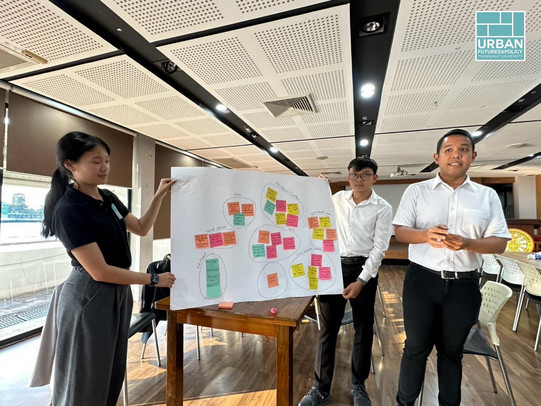
The workshop series concluded with the event in Manila. The focus was on Risk Trends and Resettlement Options – Present and Future with presentations on Informality in Metro Manila, Bangkok and Hanoi, Research areas for Climate change and risk trends and Alternative scenarios for future trends: Experiences from the three cities. This block was followed by practice-oriented implementation proposals from LIRLAP partner organisations and ministries on Developing climate-adaptive and resilient Solutions for Upgrading and Resettlement, Approaches generated from the LIRLAP Research Results and Convergence and Differential Capacities for Community Disaster Resilience. Prof. Dr. Mathias Kaiser presented his concepts from the perspective of architecture and infrastructure planning for the case studies in Manila. Dean Dr. Dina C. Magnaye and Dr.-Ing. Wolfgang Scholz reviewed the successful training courses for practitioners and the introduction of a joint Dual PhD program.
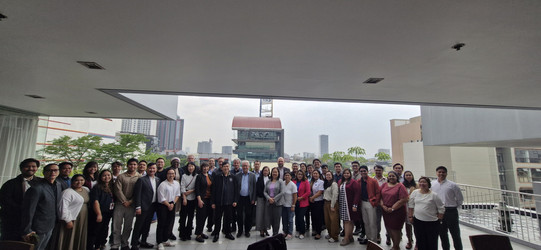
The event concluded with the official presentation of three LIRLAP products: Resilient Upgrading Guidelines, Resilient Retreat Guidelines, Mainstreaming Roadmap. This was officially handed over to the ministries, local governments and neighbourhood organisations in a ceremony.
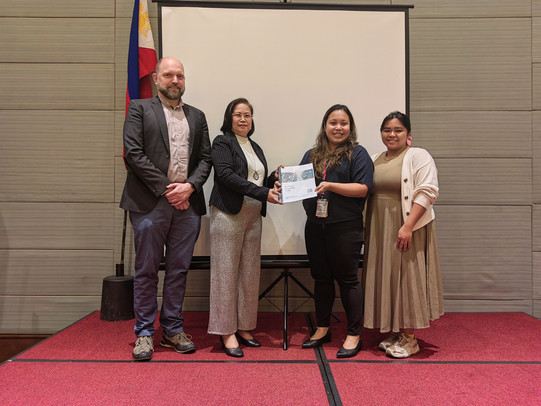
The final dissemination workshop for the R&D phase was intended to serve as a platform for the LIRLAP team to share the results of the research based on the individual work packages (WPs) with the relevant stakeholders. In particular, the handover of the proposed measures together with the guidelines for their implementation was one of the highlights of the program.
- The Final Dissemination workshop Documentation PDF (12 MB)



